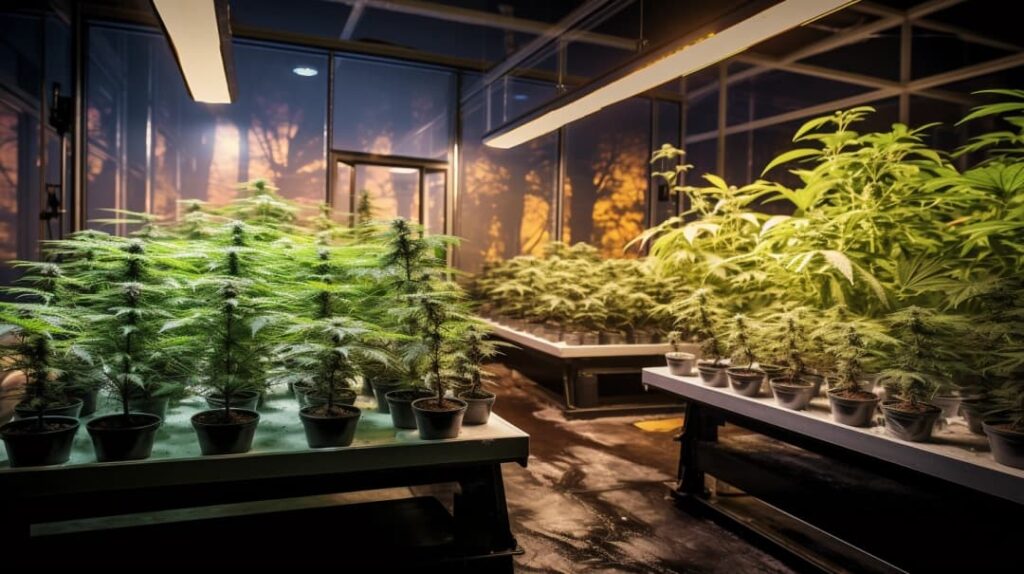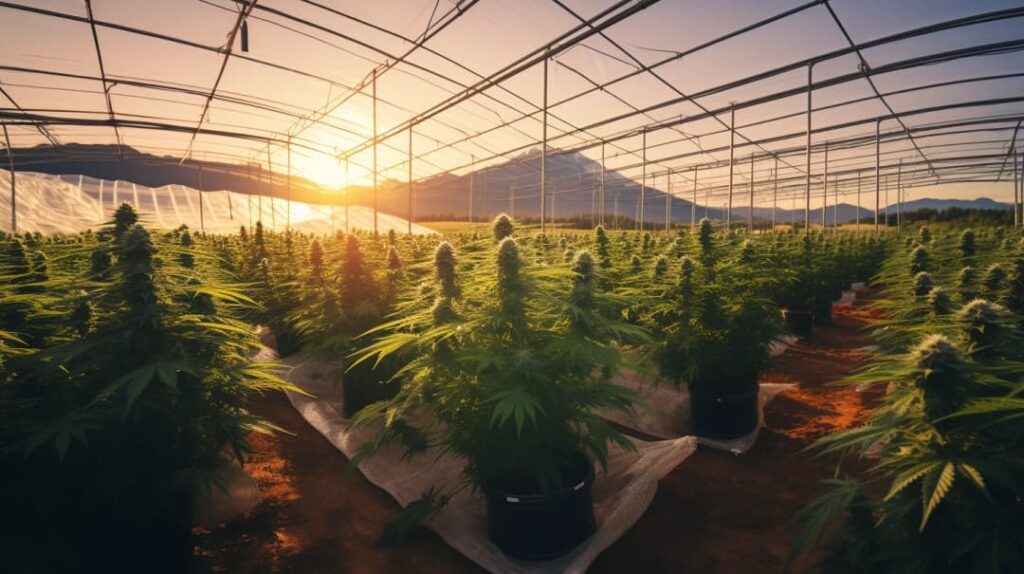Embark on a journey into sustainable farming practices within Denver’s dispensary cannabis cultivation. Explore the principles of sustainable agriculture, emphasizing organic farming techniques that prioritize environmental quality. Dive into the realm of environmental sustainability, where dispensaries employ innovative methods such as hydroponics system to enhance cultivation practices. Uncover the symbiotic relationship between cannabis cultivation and sustainable agriculture methods, shaping Denver’s commitment to eco-friendly cannabis production.
This blog illuminates the evolving landscape where environmental responsibility meets the burgeoning cannabis industry. From minimizing carbon footprints to promoting biodiversity, dispensaries are at the forefront of adopting practices that champion both product quality and ecological harmony. Whether you’re a conscious consumer or an industry enthusiast, understanding the core tenets of sustainable farming in Denver’s cannabis cultivation adds depth to your appreciation of a greener, more responsible cannabis culture. It’s time to explore the intersection of cultivation and sustainability, where the future of Denver’s cannabis landscape embraces eco-conscious practices.
Soil Quality and Nutrient Management
To achieve optimal soil quality and nutrient management in your Denver dispensary cannabis cultivation, it’s imperative to implement effective strategies and practices. One key strategy is the use of organic fertilizers. These fertilizers are derived from natural sources, such as compost, manure, or bone meal, and are free from synthetic chemicals and harmful additives. Organic fertilizers not only provide essential nutrients to your plants but also improve soil structure and fertility over time.
Another effective practice is crop rotation. By rotating different crops in your cultivation area, you can prevent soil depletion and reduce the risk of pests and diseases. Crop rotation helps break pest and disease cycles and allows the soil to replenish its nutrients naturally. Implementing these strategies will ensure long-term soil health and nutrient balance in your Denver dispensary cannabis cultivation.

Water Conservation and Irrigation Techniques
For optimal water conservation and irrigation techniques in your Denver dispensary cannabis cultivation, consider implementing efficient irrigation systems. Drip irrigation systems are an excellent choice for conserving water and ensuring that your plants receive just the right amount of moisture. These systems deliver water directly to the plant’s roots, minimizing evaporation and reducing water waste. By using drip irrigation, you can reduce water usage by up to 50% compared to traditional sprinkler systems.
Another effective water conservation method is rainwater harvesting. Collecting rainwater allows you to capture and store natural precipitation, which can then be used to irrigate your cannabis plants. This not only helps to conserve water but also reduces your reliance on municipal water sources. Implementing these techniques will not only benefit your cannabis cultivation but also contribute to a more sustainable and environmentally friendly operation.
Pest Control and Integrated Pest Management
Implementing efficient pest control measures is crucial for maintaining a sustainable and environmentally friendly Denver dispensary cannabis cultivation operation, as it builds upon the foundation of water conservation and irrigation techniques. One effective approach to pest control is the use of natural predators. These are organisms that feed on pests, helping to keep their populations in check. By introducing beneficial insects or animals into the cultivation area, such as ladybugs or predatory mites, you can reduce the need for harmful chemical pesticides.
Another option is the use of organic pesticides, which are derived from natural sources like plants or minerals. These pesticides are less toxic to the environment and can be an effective tool in managing pests while minimizing harm to beneficial organisms and the overall ecosystem. By implementing these pest control strategies, you can ensure a sustainable and thriving cannabis cultivation operation.
Energy Efficiency and Renewable Energy Sources
You can continue to improve the sustainability of your Denver dispensary cannabis cultivation operation by exploring energy-efficient practices and incorporating renewable energy sources. One way to achieve this is by integrating solar power into your facility. Solar power integration involves installing solar panels to harness the energy from the sun and convert it into electricity. This renewable energy source can help reduce your reliance on traditional power sources and lower your carbon footprint.
Another energy-efficient practice to consider is using energy-efficient lighting. LED lights, for example, consume less energy and have a longer lifespan compared to traditional lighting options. By implementing these energy-efficient practices and incorporating renewable energy sources like solar power, you can make your cannabis cultivation operation more sustainable and environmentally friendly.

Waste Management and Composting Techniques
To effectively manage waste and promote sustainable practices in your Denver dispensary cannabis cultivation operation, consider incorporating efficient composting techniques. Composting offers numerous benefits, including organic waste disposal and the production of nutrient-rich soil amendments. By composting your cannabis plant waste, such as leaves, stems, and root balls, you can divert it from the landfill and reduce your environmental impact.
Composting not only reduces greenhouse gas emissions but also helps retain moisture in the soil, suppresses plant diseases, and improves soil structure. Additionally, composting can save you money by reducing the need for chemical fertilizers. Implementing a composting program in your cultivation operation is a simple and effective way to reduce waste and contribute to a more sustainable and environmentally friendly approach to cannabis cultivation.
Final Thoughts
Sustainable farming practices in Denver’s cannabis cultivation industry are crucial for minimizing environmental impact and promoting long-term viability. By focusing on soil quality, water conservation, pest control, energy efficiency, and waste management, growers can ensure a more sustainable and eco-friendly approach to cultivation. Implementing these practices not only benefits the environment but also enhances the quality of cannabis produced, ultimately benefiting both the industry and consumers.


